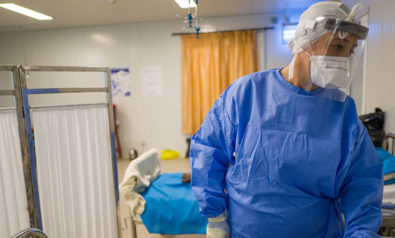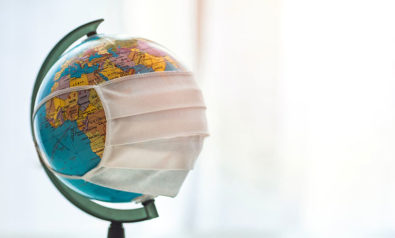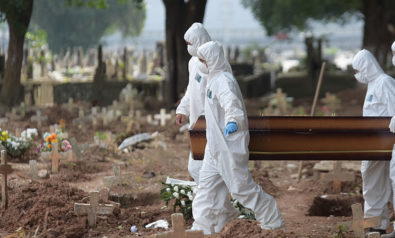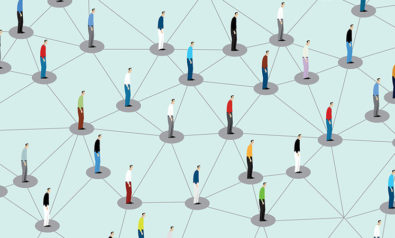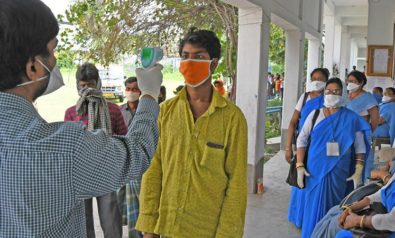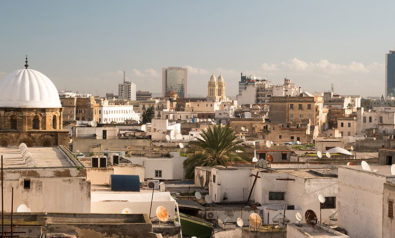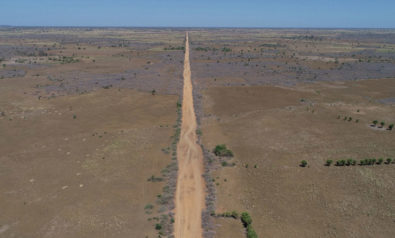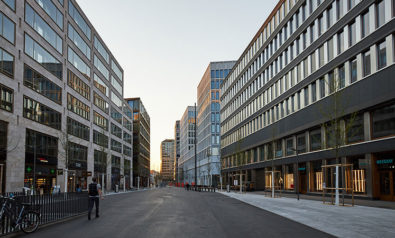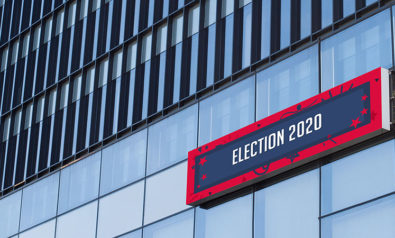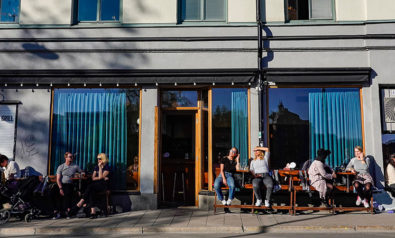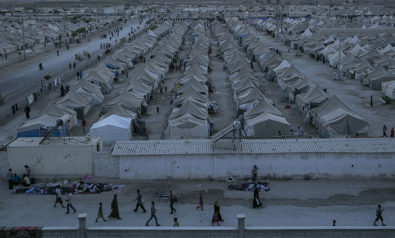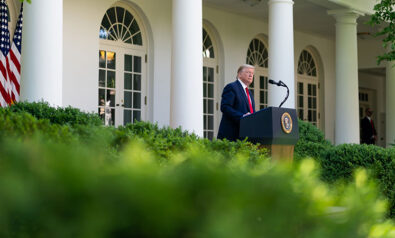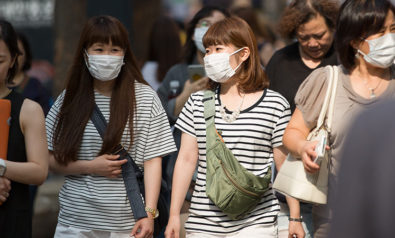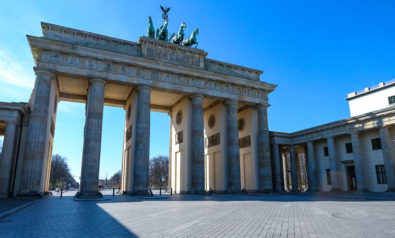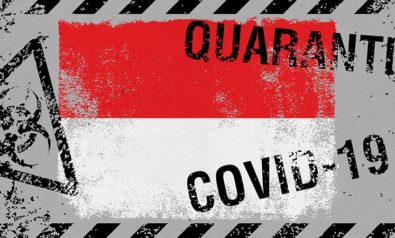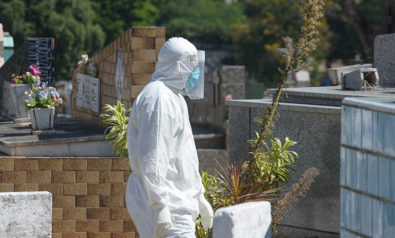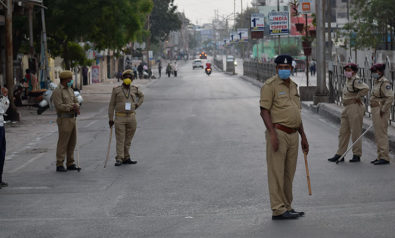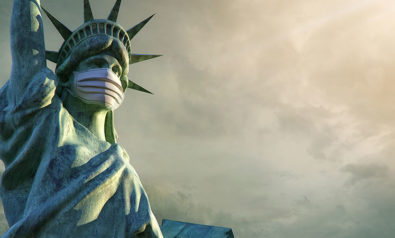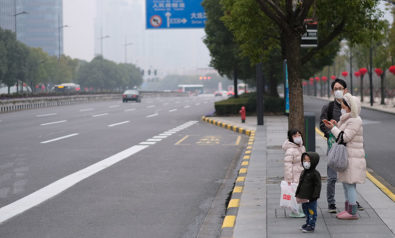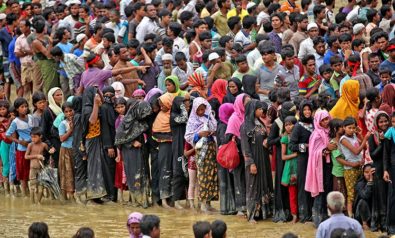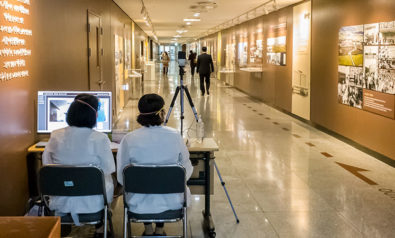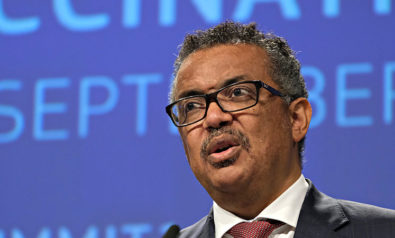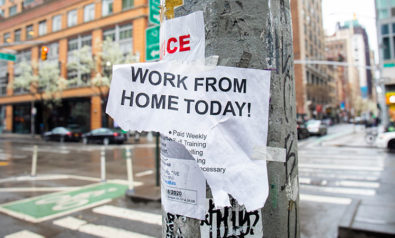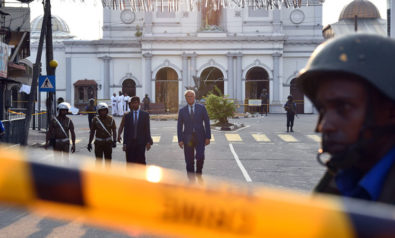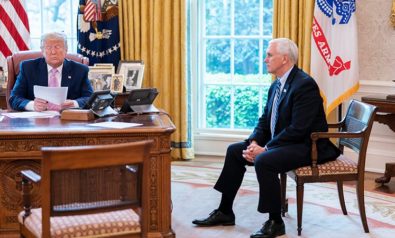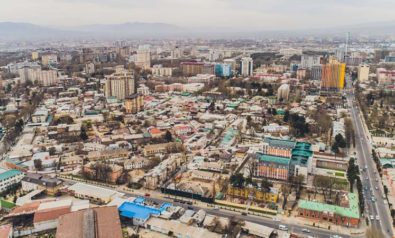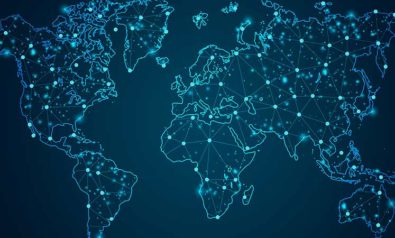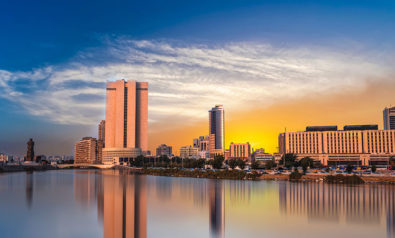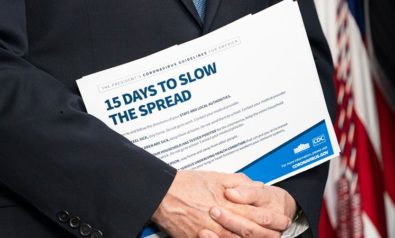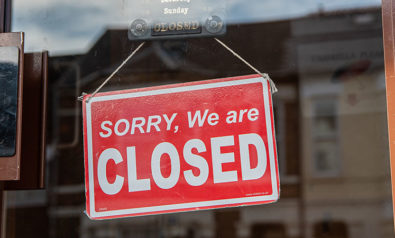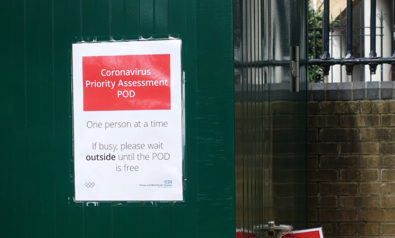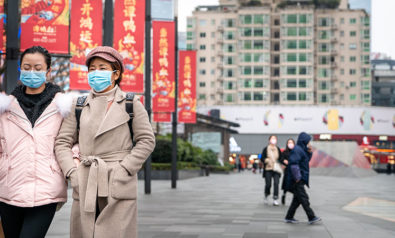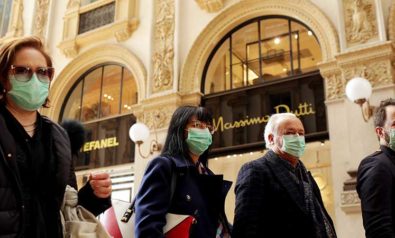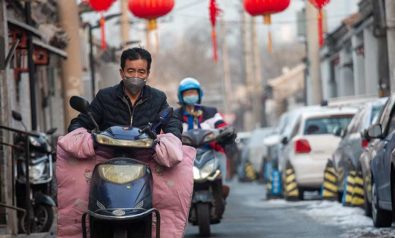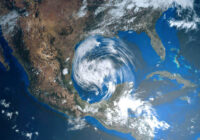Fear, in the globalized sense of the word, had largely dissipated ever since the height of the Cold War, when the world stood by as the two superpowers stared each other down with nuclear weapons. Largely absent since the days of brinkmanship seen during the Berlin Airlift and the Cuban Missile Crisis, the world has been spared such widespread terror, with a few regional exceptions in recent decades.
Fear had knocked on the door of the United States with the attacks on September 11, 2001, which led to the global war on terror and the globalized expansion of power that the country retains to this day. However, outside of select groups, the lives of everyday citizens were largely unchanged as a result of the wars in Iraq and Afghanistan, as characterized by one Marine in Iraq quoted as saying, “We’re at war, America’s at the mall.”
Infected Leviathan
With the COVID-19 pandemic, this lack of fear across society has evaporated in the span of a few weeks. In the United States alone, almost 55,000 are now dead due to the virus itself, tens of millions are unemployed, and all levels of government are in crisis as they respond to the biggest pandemic since the Spanish influenza of 1918. The coronavirus pandemic is the biggest test of America’s sociopolitical institutions since World War II. How the country succeeds — or fails — will shape public perception of threat for years, as has happened as a result of Soviet nuclear menace and the terrorist attacks of the early 2000s.
This crisis will reorder how the most powerful country on earth deploys its state capacities to prioritizes self-preservation. The US military, for decades the center of state capacity, has become more so as part of the war on terror, with the defense and intelligence communities taking on increased responsibility in sectors traditionally affiliated with other agencies within the US government, such as the State Department or United States Agency for International Development.
As the federal government wains in its public-health response, states and mayors have been protagonists in containing — or failing to contain — the spread of COVID-19 as evidenced by the state-by-state variation of the response. From downplaying the severity of the virus and the pitfalls at the Centers for Disease Control to the quick depletion of the emergency stockpiles of medical personal protective equipment (PPE), the federal government has been caught alarmingly unprepared for this crisis.
The results thus far are extremely worrisome, with some projections warning of possibly worse scenarios. In an escalating cycle, rage at the bureaucracy’s inability to mobilize could lead to its inability to respond to a possible second wave of the pandemic or other international incidents that may occur as a fallout of COVID-19. It is, however, worthwhile considering the second-order effects of this crisis and how they will affect today’s world.
Opportunism and Revisionism
Seizing the opportunity offered by the global crisis, revisionist powers are already taking advantage of the COVID-19 pandemic for their own gain. The Chinese state already introduced, via its extensive propaganda system, a narrative casting the United States as a belligerent actor that “brought the epidemic to Wuhan.” Left unsaid is that the Chinese state had censored medical professionals from reporting on the new virus, many of whom died trying to contain it.
Lijian Zhao, the spokesman for the Chinese Foreign Ministry, has been the regime’s key figure in this effort. Simultaneously, China has sought to use its foreign policy to take advantage of the pandemic by providing supplies to nations in crisis and position itself as a reliable humanitarian partner.
Similarly, illiberal democracies, which had proliferated in the wake of the economic crisis of 2008, have sought to use this crisis to their advantage to tighten their grip on power. Most prominently, on March 30, Hungary’s parliament granted Prime Minister Viktor Orban vast emergency powers by which he can now suspend laws. Other nations, such as Israel, have activated similar authoritarian measures. In this context, it is possible that states with waning democratic processes will continue to leverage quarantine measures and other extraordinary powers to reshape their states’ governments, especially given the public’s current willingness to tolerate such a narrowing of civil liberties. The expansion of the surveillance state under the pretext of tracking the virus is perhaps the best example of this dangerous opportunism.
Geopolitically, COVID-19 could be a catalyst triggering the reversal of the globalizing trend that has characterized the last three decades but that has also come under increased criticism in recent years. For instance, the critical shortage of medical PPE, which can be traced to the decline of trade exacerbated by ongoing trade wars, could lead to a return to manufacturing nationalism by many governments. Just as troubling is the lack of international coordination and the rise of bellicose rhetoric as governments seek to assign blame to others rather than work together to address the global scarcity of resources.
This rapid escalation of tensions between world powers could lead to the decline of the world’s trade networks that have underscored global prosperity since 1945. In future elections, we will certainly see the pandemic leveraged as an argument for nationalizing sections of the global economy, which is grounds for some concerns about interstate conflict.
The Economic Toil
Financially and economically, world governments learned some lessons from the 2008 global financial crisis, which underline that a larger economic stimulus at the forefront is more useful than delayed action. As such, the US Federal Reserve has opened up its credit swap lines, allowing foreign central banks to stay afloat, and is deploying quantitative easing to main market liquidity. While many comparisons have been drawn to 2008, our current crisis is unique in that aggregate demand has basically disappeared in certain industries, such as tourism, entertainment and travel.
The $2-trillion CARES stimulus bill is the largest relief package ever passed by the US Congress. There are, however, indications at this point that this package is not enough and that the socio-economic impact on the global economy will have ramifications long after quarantine orders are lifted. In this unique downturn, small businesses and families are feeling the sharp consequences of a decade of stagnant wages, which have resulted in workers not having enough savings to last them more than a few weeks.
Simultaneously, the small-business loan program established via the CARES Act has already exhausted its funds. Though large corporations are still able to secure lines of credit from the Department of the Treasury and the Federal Reserve, the United States is a country of entrepreneurs where small and midsized businesses employ the majority of the national workforce. At this point, unemployment numbers, unfortunately, speak for themselves.
Austerity politics and political gridlock have already fostered a climate of inaction in Washington. However, insufficient coordination between the federal government and the states will only throw the US into further disarray. Similar to the rise of the Tea Party as a response to government policies in the wake of the 2008 financial crisis, backlash to state-sanctioned quarantines has already prompted protests from the militant right. A state-by- state opening up could further throw America into chaos, especially as testing remains low.
On the global stage, an increasingly nationalistic China will likely take advantage of the United States’ choice to withdraw funding from the World Health Organization, as it has with a number of other international initiatives. The Chinese state has already shown a willingness to assist states regardless of their human rights records or autocratic tendencies. Bolstered by fear, autocratic regimes may proliferate in the wake of human casualties and economic wreckage caused by the coronavirus.
Pandemics have historically been shown to bring changes in the power of the state. This pandemic, enabled by the technological prowess of surveillance, could well develop into an alarming international trend contributing to the detriment of liberty worldwide.
The views expressed in this article are the author’s own and do not necessarily reflect Fair Observer’s editorial policy.
Support Fair Observer
We rely on your support for our independence, diversity and quality.
For more than 10 years, Fair Observer has been free, fair and independent. No billionaire owns us, no advertisers control us. We are a reader-supported nonprofit. Unlike many other publications, we keep our content free for readers regardless of where they live or whether they can afford to pay. We have no paywalls and no ads.
In the post-truth era of fake news, echo chambers and filter bubbles, we publish a plurality of perspectives from around the world. Anyone can publish with us, but everyone goes through a rigorous editorial process. So, you get fact-checked, well-reasoned content instead of noise.
We publish 2,500+ voices from 90+ countries. We also conduct education and training programs
on subjects ranging from digital media and journalism to writing and critical thinking. This
doesn’t come cheap. Servers, editors, trainers and web developers cost
money.
Please consider supporting us on a regular basis as a recurring donor or a
sustaining member.
Will you support FO’s journalism?
We rely on your support for our independence, diversity and quality.



